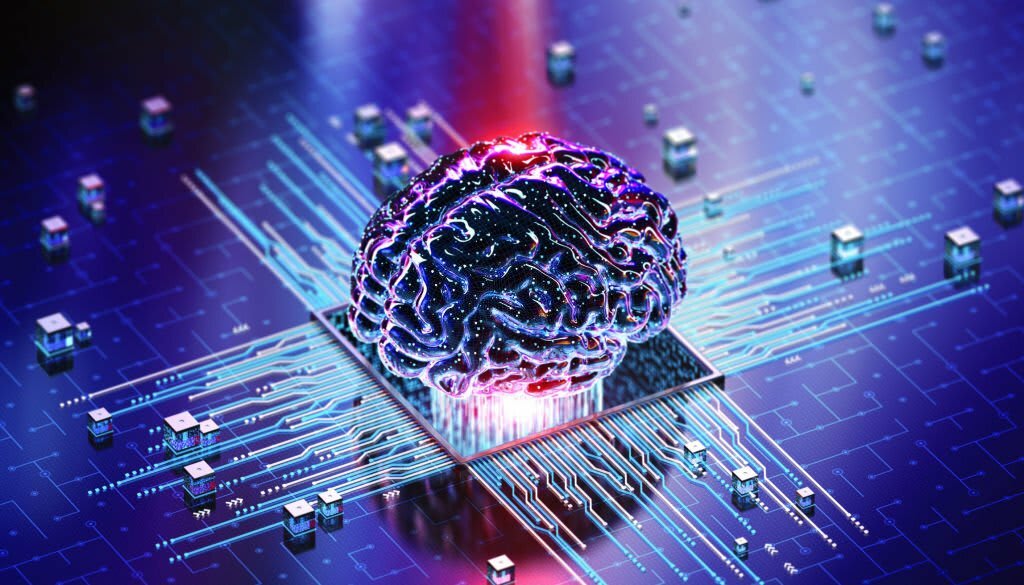AI Technology
The Rise of Artificial Intelligence

Artificial intelligence (AI) has emerged as one of the most transformative technologies of our time. It involves the development of human-like intelligence in machines, enabling them to learn, reason, and perform tasks that traditionally required human intervention. Over the years, AI has seen significant advancements, leading to its widespread adoption across various industries. This article explores the rise of artificial intelligence, its applications, benefits, and potential challenges.
Artificial intelligence (AI), a term that once belonged to science fiction, is now a reality shaping our world. It refers to the development of computer systems capable of mimicking human intelligence, learning from experience, and executing tasks that previously required human intervention. The growth and adoption of AI have been accelerated by advancements in technology and computing power. Today, AI is transforming various industries, unlocking new possibilities and driving innovation.
AI has a rich history that dates back to the mid-20th century when researchers began exploring the concept of creating intelligent machines. The field of AI experienced significant breakthroughs during the 1950s and 1960s. Notable pioneers such as Alan Turing, John McCarthy, and Marvin Minsky laid the groundwork for AI development.
Since then, AI has evolved at a rapid pace, catalyzed by advancements in processing power, algorithms, and data availability. Major milestones in AI development include the creation of expert systems, the development of natural language processing, the advent of machine learning, and the rise of deep learning. These milestones have paved the way for intelligent virtual assistants, self-driving cars, and other AI-driven technologies.
AI's potential applications are vast and diverse, revolutionizing key sectors across the board. In healthcare, AI is enabling more accurate diagnosis, predicting diseases, and assisting in patient care. Finance and banking benefit from AI-powered fraud detection, algorithmic trading, and personalized financial advice. Transportation is witnessing the rise of autonomous vehicles, optimizing routes and reducing accidents.
AI is reshaping manufacturing by automating processes, improving production efficiency, and enabling predictive maintenance. In education, AI-powered platforms are providing personalized learning experiences tailored to individual students. Customer service is enhanced through intelligent chatbots capable of understanding and responding to human queries.
Agriculture benefits from AI-driven precision farming techniques, optimizing crop yields and minimizing resource wastage. Entertainment is transformed by AI-generated content and personalized recommendations, enriching user experiences. AI also plays a crucial role in cybersecurity, detecting and mitigating threats in real-time.
The rise of AI brings numerous benefits to society. One of the key advantages is improved efficiency and automation across industries. AI-powered systems can undertake tasks at a rapid pace, reducing human effort and costs. Enhanced decision-making is another advantage, as AI algorithms can process vast amounts of data and extract valuable insights, aiding in strategic planning and problem-solving.
AI's advanced data analysis and pattern recognition capabilities enable organizations to leverage data for actionable insights. Personalized user experiences powered by AI improve customer satisfaction and engagement. Predictive maintenance, made possible by AI, helps identify potential issues before they arise, optimizing maintenance efforts and reducing downtime.
The rise of AI is not without challenges and concerns. Ethical considerations arise as AI systems make decisions that impact human lives. Questions of accountability, transparency, and bias in algorithms prompt careful evaluation and regulation. Job displacement is another concern, as AI automation may replace certain professions entirely.
Data privacy and security also come into play, as AI systems rely on extensive data collection and analysis. Protecting sensitive information while deriving value from it requires robust cybersecurity measures. Bias in AI algorithms, influenced by the data they are trained on, can perpetuate existing societal biases and discrimination, necessitating fair and unbiased AI systems.
The future of AI holds immense potential. The integration of AI and robotics is expected to revolutionize industries such as healthcare, manufacturing, and agriculture. Advancements in machine learning and deep learning will enable AI systems to acquire knowledge and skills more efficiently, further enhancing their abilities.
AI for social good will play a crucial role in addressing global challenges, from healthcare to climate change. Continued research and development will push the boundaries of AI further, unlocking new possibilities and applications. As AI continues to evolve, it is vital to ensure responsible and ethical usage, focusing on the beneficial aspects while mitigating potential risks.
The rise of artificial intelligence has ushered in a new era of technology-driven transformation. AI's applications span a wide range of industries, shaping the way we live and work. With its numerous benefits and potential challenges, AI demands careful consideration regarding ethics, privacy, and bias. As we envision the future, continued research and responsible implementation of AI will pave the way for a more efficient, innovative, and inclusive society.
About the Creator
samuel kariuki muriithi
am a photographer ,videographer ,barber and a very good rider
lover of nature






Comments
There are no comments for this story
Be the first to respond and start the conversation.